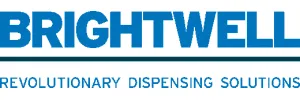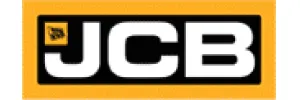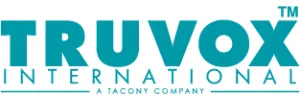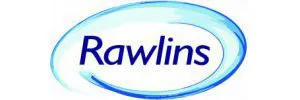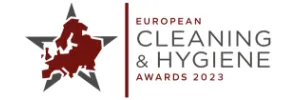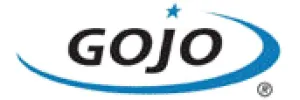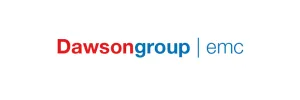News & Insights
Read the latest news from us and our clients across the globe

Posted on 15 May 2012 by adtrak.admin
Minimise food safety threats by being constantly audit ready
Antony Thompson, director of the ISS Facility Services food manufacturing division, shows how competitive advantage can be gained from being audit ready at all times through strict hygiene controls.
Dealing with compliance and stringent auditing requirements is an essential aspect of the food manufacturing industry as increasingly high standards are being set by regulatory bodies and retailers. Cutting corners in the area of food safety can have a serious impact on business.
Whilst cleanliness and hygiene is important in all industry sectors, it is of critical importance in the food manufacturing process. Manufacturers have a legal requirement, under the Food Safety (General Food Hygiene) Regulations 1995, to ensure they do not include anything in food, remove anything from food or treat food in any way which means it would be damaging to the health of people eating it, Food safety is paramount and how that is achieved is by ensuring the utmost cleanliness of all plant processing equipment and the food manufacturing environment.
Despite improvements made in the safety of food supply, factors such as the development of pathogens into more resistant strains, or changes in the vulnerability of the population’s immunity, and transportation of raw materials over greater distances means problems continue to persist. In the current economic climate, cuts in training also add risk that high standards might not be met. Reformulating of products or processes can also lead to change in food-borne pathogens.
We continue to hear in the news about products being recalled, for example as a result of a case of, E-coli or listeria, which heightens awareness and concerns over food hygiene. In this international marketplace, one contamination incident can have major repercussions across the globe. Threats to food safety not only result in costly recalls but can lead to loss of revenue and damage to company reputation.
Setting standards
Manufacturers can be audited by several customers all of which have their own stringent standards for food safety, such as Tesco’s PIU audit and Marks & Spencer PPC audit. There are also sector specific standards such as those outlined by the Federation of Bakers. These individual auditing processes often go beyond the British Retail Consortium (BRC) Global Standard for Food Safety which specifies requirements to be met by an organisation to enable the production, packaging, storage and distribution of safe food and consumer products. The BRC Global Standard itself is continuing to evolve, with expanded sections on foreign body control, hygiene and housekeeping and allergens included in Issue 6.
Where is the risk?
There are many stages where there is risk of contamination during the manufacturing process unless strict hygiene practices are followed – from receiving goods in, to cooking, chilling and packing. Food-borne hazards may be biological (e.g. E-coli), physical (e.g. metal) or chemical (e.g. cleaning product residues). Allergen management is also essential, as foods can be withdrawn or recalled if there is a food allergy risk to consumers.
The categorising of food into various risk levels is regularly under review. Currently there are two key risk levels. Foods that are high-risk support the growth of bacteria so they tend to be moist and high in protein, such as ready-to-eat foods that will not be cooked before being eaten. Food which is preserved or has high acid, salt and sugar conditions is at lower risk of being contaminated as bacteria cannot multiply easily in these foods.
Manufacturers are required by law to implement critical control points for food safety through the Hazard Analysis Critical Control Point (HACCP) process. Steps need to be identified which are critical to food safety and adequate safety procedures identified, implemented, maintained and reviewed. This includes knowing where the product has come from, whether it has been tested for food safety, the temperature the goods will be received at in the goods in, how will it be handled and stored and processed and where it will be distributed to. Cleanliness and hygiene is absolutely paramount within the HACCP process.
Benefits of outsourcing food production cleaning and hygiene services
Microbial risk prevention along with higher regulatory demand is making cleaning more time consuming and puts greater pressure on internal resources and there is the added likelihood that employees can easily get pulled into other work tasks.
Manufacturers must ensure that cleaning is undertaken by individuals who specialise in cleaning and the technology for cleaning and that the results are validated, compliant and meet stringent third-party audits.
Outsourcing food production site cleaning to hygiene specialists ensures your site is audit ready at all times, whilst allowing the food manufacturer to focus on the core task of food production. Food companies can gain a competitive advantage with strategic outsourcing by allowing each plant to minimise downtime whilst meeting its mission and objectives.
A relationship of this magnitude must be a partnership with an organisation you can trust; one that has a reputation to deliver a quality service backed with technical expertise that meets requirements and exceeds expectations. Outsourcing to a company which has proven specialist cleaning services in all manner of food production sites, including those which are particularly high risk environments, can save management valuable time and resources. Minimising production downtime with a dedicated, efficient cleaning team will lead to improved financial performance.
Keeping pace with standards and trends in the food industry is key and guidelines are changing all the time on which chemicals are safe to use. Food manufacturers need to be assured that, when selecting a contractor to carry out cleaning, the people who carry out the work are highly trained to the latest food hygiene and health and safety standards.
If you are using workers to provide a service e.g. clean the food production line, or clean food waste that is to be further used (e.g. in pet foods) the contractor must be licensed by the Gangmasters Licensing Authority (GLA).
The GLA regulate the supply of workers to industries involved in the processing and packaging of foods. This licence is a legal requirement and demonstrates that businesses can prove ethically sound treatment of workers as well as impeccable health and safety standards. You can check who holds a licence via the GLA website: www.gla.defra.gov.uk or contact the GLA on 0845 602 5020 to clarify the licensing requirement in particular circumstances.
Whatever systems are put in place, they are only as good as the people who use them as contamination can occur through food handling errors. Attention needs to be paid to the finest detail such as safe chemical concentrations and periodic deep cleaning programmes. Specialists will design a total cleaning programme using the best cleaning methodologies designed to meet requirements and reducing risk of pathogenic organisms.
Keep comprehensive records
Holding up-to-date documentation is an important part of food safety management. Our company keeps comprehensive records as part of the auditing process and to demonstrate due diligence. ATP readings are carefully recorded and information such as temperature controls and cleaning of equipment using safe chemicals is date stamped. If we take the bolts off the side of a panel to clean, the bolts are counted off and counted back on and this is documented to prove this. We recognise the importance of drilling down into the quality control specifications for any activity at any given time as well as following strict procedures for putting the factory back into its original state. Cleaning instruction cards and training records are also regularly updated. The risk of contamination can be reduced by having the right methodology in place for cleaning processes and rigidly following those procedures.
The latest chemical products are extremely effective and save time, as they act in a much quicker way, reducing cleaning downtime and resulting in labour savings. They also use less water and generate less energy than chemicals with sodium hydroxide properties. Our company has also invested in low pressure wash down systems which use less water and energy and reduce the risk of dangerous particles being released into the air compared to high pressure washing. By implementing good hygiene practices and following these operational hygiene controls, food manufacturers can be safe in the knowledge that they are meeting food safety standard and audit requirements, and protecting consumers.Stay safe
Experts in Public Relations Services & Communications Management
Our ServicesGenuine industry specialists in cleaning and hygiene, environmental and recycling, and facilities management
Our Sectors
